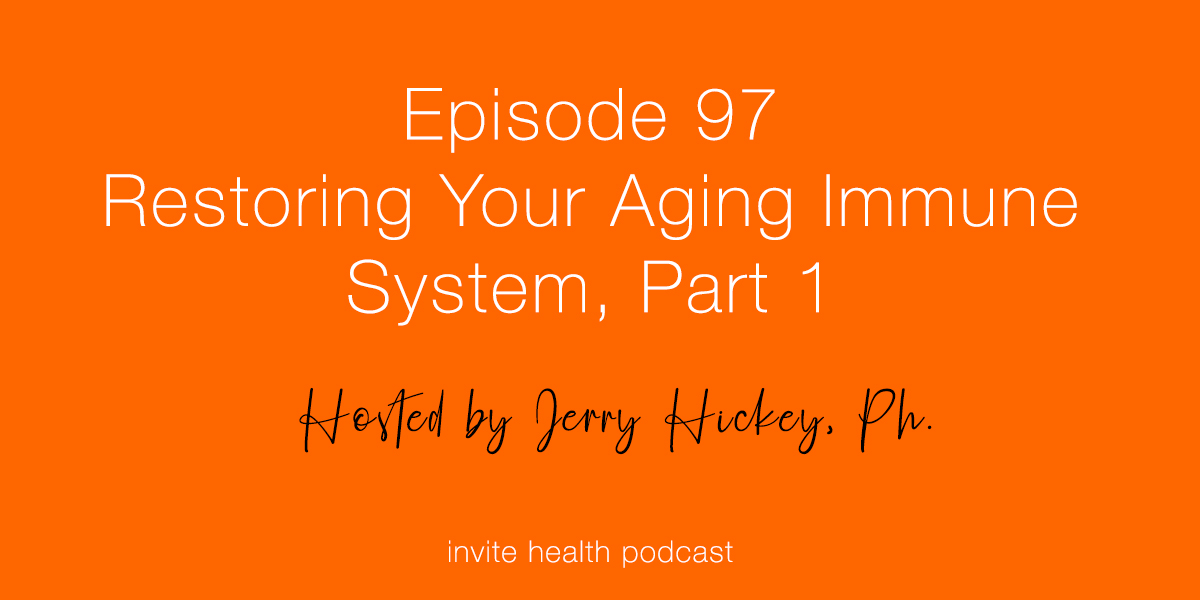Restoring Your Aging Immune System, Part 1 – Invite Health Podcast, Episode 98

Invite Health Podcast, Episode hosted by Jerry Hickey. Ph
Subscribe Today!
Our immune system becomes less competent with age. In fact, there is even a term for the aging of our immune system called immunosenescence. That’s how common it is! This makes a person more vulnerable to diseases and can make a common infection, such as the flu much more dangerous. Because the immune system is weaker and less responsive, vaccinations become less effective. This is because it is harder for an older immune system to make antibodies, which are generated against specific microbes so you have resistance.
You Make Fewer Immune Cells As You Age
With aging, we also make fewer immune cells. B-cells decrease in number and produce our antibodies, which gives us resistance and immunity against specific infections. T-cell also drop in number. They are complex cells and there are numerous types. T-cells are extremely important for fighting infections, helping to control the immune system and aiming it towards a specific infection. Also, once the infection is gone, T-cells help wind down the immune system response, which otherwise would cause out of control inflammation. Natural killer cells are also very important for fighting infections. They are still very plentiful with age but they become weaker in their ability to kill virus-infected cells or cancer cells. 
Your Body Becomes Inflamed As You Age
There is a secondary issue with our immune system. Age makes our bodies chronically inflamed, commonly referred to as inflammaging. We develop constant, chronic low-grade inflammation, which accelerates our rate of aging at the cellular level. Part of the reason for this is because we generate and absorb less antioxidants. This would normally be the antidote to free radicals generated during the inflammatory process. Free radicals cause inflammation. For example, Lutein is a very important antioxidant that has been shown to help with inflammation in our blood vessels, heart, brain and eyes. Another example is Zinc, as we absorb it less with age as well.
Thank you for tuning in to the Invite Health Podcast. You can find all of our episodes for free wherever you listen to podcasts or by visiting www.invitehealth.com/podcast. Make sure you subscribe and leave us a review! Follow us on Facebook, Twitter and Instagram at Invite Health today. We’ll see you next time on another episode of the Invite Health Podcast.

